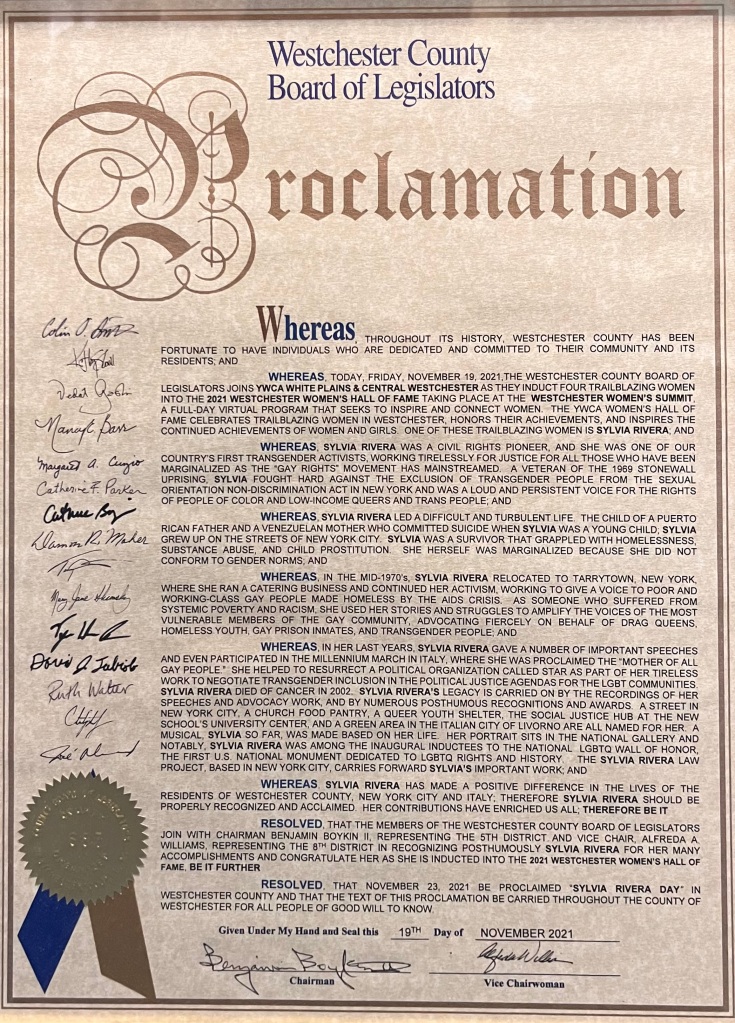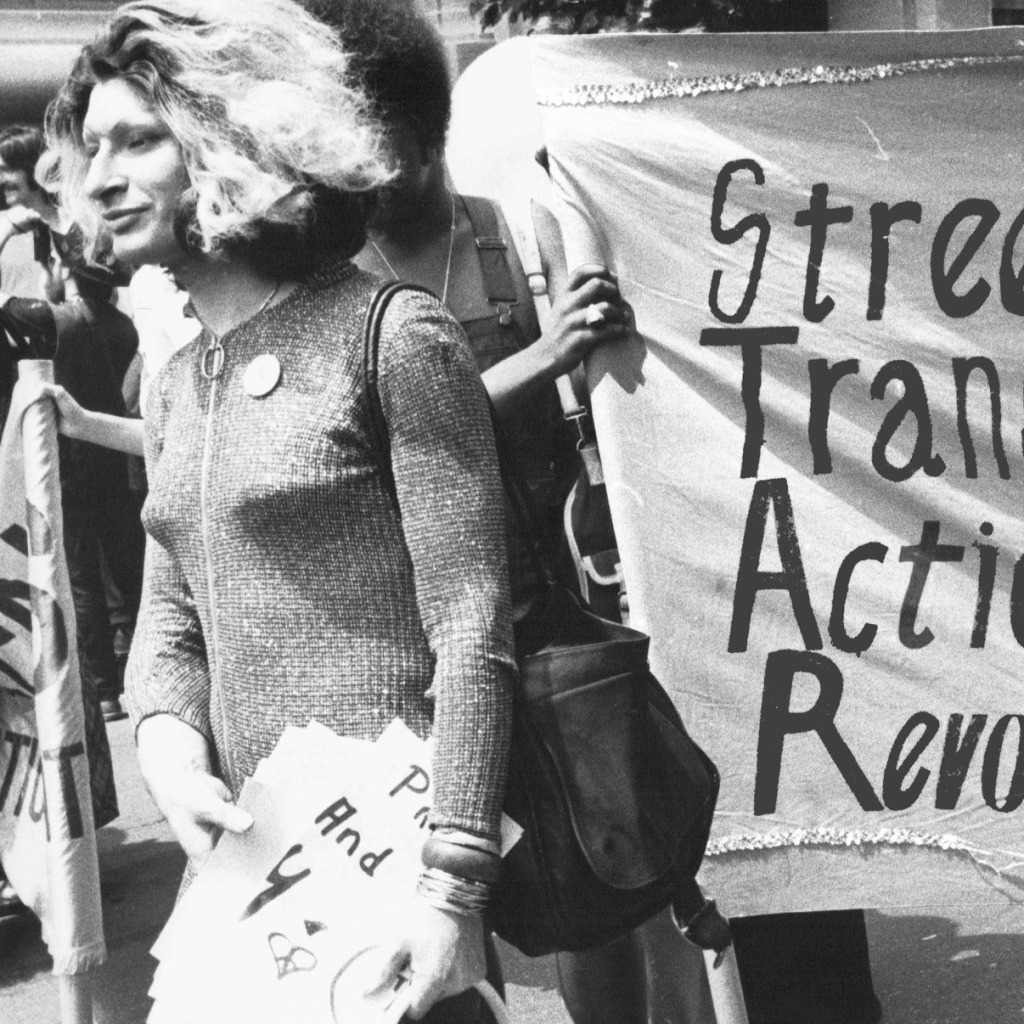Sylvia Rivera’s activism, including her affiliation with the Gay Liberation Front and the Street Transvestite Action Revolutionaries, left an enduring legacy. Rivera is one of the best-known names associated with LGBTQ+ activism at the time of the Stonewall uprising, despite some degree of historical uncertainty concerning whether she was actually at the riot.

In 1970, the Latine activist and drag queen, who had once been a homeless teenager engaged in survival sex work in New York City, cofounded the Street Transvestite Action Revolutionaries, a group dedicated to helping homeless young drag queens, gay youth and transfeminine people. Rivera was also active in the Gay Activists Alliance and Gay Liberation Front, fighting for gay and transgender rights and combating discrimination.
In 1973, Rivera gave a now-famous speech at a Stonewall anniversary and Christopher Street Liberation Day rally (i.e., early Pride) in which she criticized members of the LGBTQ+ community for their neglect of the most marginalized people within their community, such as poor and incarcerated transgender women. An excerpt:
I believe in the gay power. I believe in us getting our rights, or else I would not be out there fighting for our rights. That’s all I wanted to say to you people … come and see the people at Star House…The people are trying to do something for all of us, and not men and women that belong to a white middle class white club.
Sylvia Rivera (recording)
Rivera left the city in the late 1970s and moved to Westchester, where she lived for many years. Towards the end of her life, she moved back to New York City, where she was unhoused but still active within the LGBTQ+ community, always seeking to improve the lives of the most marginalized queer people.
Rivera died at age 50 from complications associated with liver cancer. Today, she is remembered through initiatives like the Sylvia Rivera Law Project, an organization that that works to help people experiencing discrimination and violence based on their gender identity and expression.
Rivera’s Westchester connection
After leaving the city in the late 1970s, Rivera lived in Westchester for years. One of her addresses was 12 Lawrence Avenue, #2, Sleepy Hollow, N.Y. (confirmed with the Westchester LGBTQ+ History Project via email by Eric Marcus, executive director of Making Gay History, who interviewed Rivera there in 1989).
According to 2002 interviews with Sylvia Rivera’s lover, Frank Constantino, the two lived together in various apartments in Tarrytown, North Tarrytown (now Sleepy Hollow) and Yonkers, N.Y. Constantino said Sylvia would regularly frequent The Huddle, a bar in Tarrytown, and made friends with other gay and gender-nonconforming people who lived locally
“She could spot her own kind in a minute,” Constantino said. “She’d go, ‘Oh, Miss Thing,’ you know?”
According to Constantino, Rivera worked in food service at a corporate office building in Westchester and at Children’s Village in Dobbs Ferry, N.Y. Constantino also said that, while she would typically go into the city to take part in rallies and other politically motivated LGBTQ+ actions, Rivera was also active in Westchester. She attended Westchester gay discos and once gave a speech pertaining to her transgender identity in White Plains. Her friends from the city regularly traveled up to Westchester to visit her, including trips to perform in drag at the Tarrytown Music Hall.
“They did drag shows. They were so cool. They made a big hit with a lot of straight people, that was really impressive.
… It was funny because it’s like, at one point, Sylvia’s trying to get ready and she’s like checking on the tickets and everything, make sure everybody’s alright, she’s still got curlers in her hair, taking tickets.”
Frank Constantino, in a 2002 interview with John Kearns
(The “Bebe” Frank speaks of in these oral history interviews is most likely Rivera’s friend Bebe Scarpinato, a prolific LGBTQ+ activist. “Cocoa” was likely Cocoa Rodriguez.)
In one interview, Constantino reflected on Rivera leading a group of people to hop in a fountain at the Untermeyer Gardens in Yonkers, N.Y., on a hot summer day.
Before she moved back to New York City, Rivera also lived in shelters in White Plains and Yonkers, where she was the victim of sexual violence, according to Constantino.
In 2021, the Westchester County Board of Legislators issued a proclamation posthumously inducting Rivera into the 2021 Westchester Women’s Hall of Fame and pronouncing November 23, 2021 “Sylvia Rivera Day.”

If you have more information about Sylvia Rivera’s life in Sleepy Hollow, Tarrytown or Yonkers, please contact the Westchester LGBTQ+ History Project at westchesterlgbtqhistoryproject@proton.me.

Leave a comment